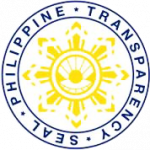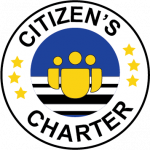- GOVPH
- About BOC
- Issuances
- Aduana Library
- Memoranda
- Memoranda for Reference Values
- Customs Administrative Order (CAO)
- Customs Administrative Order (CAO) 2025
- CUSTOMS ADMINISTRATIVE ORDER (CAO) 2024
- Customs Administrative Order (CAO) 2023
- Customs Administrative Order (CAO) 2022
- Customs Administrative Order (CAO) 2021
- Customs Administrative Order (CAO) 2020
- Customs Administrative Order (CAO) 2019
- Customs Administrative Order (CAO) 2018 and Older
- Customs Memorandum Order (CMO)
- Customs Memorandum Circular (CMC)
- Customs Memorandum Circular (CMC) 2025
- Customs Memorandum Circular (CMC) 2024
- Customs Memorandum Circular (CMC) 2023
- Customs Memorandum Circular (CMC) 2022
- Customs Memorandum Circular (CMC) 2021
- Customs Memorandum Circular (CMC) 2020
- Customs Memorandum Circular (CMC) 2019
- Customs Memorandum Circular (CMC) 2018 and Older
- Customs Special Order (CSO)
- Custom Training Circular (CTC)
- Joint Memorandum Orders (JMO)
- Trade
- News Room
- Port Updates
- HR Corner
- Quicklinks
- Infographics
- Bureau of Customs Webinar
- Auction and Sales
- Bid Opportunities
- Invitation to Bid / Request for Quotation / Invitation for Negotiated Procurement / Notice to Conduct Direct Contracting – 2023
- Invitation to Bid / Request for Quotation / Invitation for Negotiated Procurement / Notice to Conduct Direct Contracting – 2022
- Invitation to Bid / Request for Quotation / Invitation for Negotiated Procurement / Notice to Conduct Direct Contracting – 2021
- Invitation to Bid / Request for Quotation / Invitation for Negotiated Procurement / Notice to Conduct Direct Contracting – 2020
- Invitation to Bid / Request for Quotation / Invitation for Negotiated Procurement / Notice to Conduct Direct Contracting – 2019
- Invitation to Bid / Request for Quotation / Invitation for Negotiated Procurement / Notice to Conduct Direct Contracting
- Bid Documents
- Bid Supplement
- Summary of Awarded Contracts
- Summary of Contracts Awarded 2023
- Summary of Contracts Awarded 2022
- Summary of Contracts Awarded 2021
- Summary of Contracts Awarded 2020
- Summary of Contracts Awarded 2019
- Summary of Contracts Awarded 2018
- Summary of Contracts Awarded 2017
- Summary of Contracts Awarded 2016
- Summary of Contracts Awarded 2015
- Summary of Contracts Awarded 2014
- Summary of Contracts Awarded 2013
- Annual Procurement Plan
- Customs Knowledge Resources
- References
- Gender Equality and Diversity
- Philippine National Trade Repository
- Philippine Tariff Finder
- Authorized Economic Operator
Dummies of Oil Smugglers Charged
The BOC filed smuggling charges today against the General Manager and a major stockholder of a small, under-capitalized company that was able to import nearly P8.5 billion worth of petroleum products between March 2009 and September this year.
Two weeks ago, BOC filed a smuggling case against an oil industry player who wrongly thought it had perfected the scam of defrauding the government hundreds of millions of pesos through the simple expedient process of importing big volumes of oil, dividing the shipment into parcels and paying duties and taxes for only some of the parcels.
This time, BOC will expose another modus operandi of oil smugglers. Their scheme of deception involves bringing in big volumes of petroleum products, clear it from Customs under consumption entries, pay duties and taxes thereon, then export a portion of the imported volume and thereafter file a claim for a full refund for the duties and taxes previously paid.
Sued were Alleli Avila Arellano, major stockholder and broker of Cross Country Oil and Petroleum Corporation and Arturo Marcelino Zapata, general manager of the same company which had been able to engage in multi-billion peso oil importation business despite a paltry capitalization of only P3 million. Cross Country holds office at Unit 3105 World Trade Exchange Building, 215 Juan Luna Street, Manila.
Also included in the charge sheet are SAMUEL R.MORA, duties and VAT-refund representative of Cross Country, JEROME D. CANADA, customs broker and several JOHN DOE/S and JANE DOE/S, among them customs employees who conspired or colluded with other parties to defraud the government of much-needed revenues.
Customs Commissioner Angelito Alvarez said respondents Arellano and Zapata were being indicted for misusing their accreditation and allowing themselves to be used as dummies in violation of the Customs and Tariff Code of the Philippines.
Alvarez added that these violations gave the government legal justification to consider all subject Cross Country shipments as fraudulent and demand from the company payment of the entire amount of the petroleum products imported to the tune of P8.5 billion.
The two were also being charged, according to Alvarez, for filing false claims that enabled Cross Country to secure a P99,460,674.17 refund of duties and taxes it paid on its oil shipments covered by import entry numbers C-100-09, C-101-09 and C-102-09 which arrived on April 3, 2009 and stored at the Oilink Terminal in Lukain, Limay, Bataan.
According to Alvarez, initial verifications with the Bureau of Internal Revenue revealed the lack of financial capacity of the officers and stockholders of Cross Country to support their import operations. This lends credence to the allegations that the company is being used by unscrupulous individuals as a front or dummy for their unlawful importation of petroleum products.
Cross Country’s core business is GASOIL which is more popularly known as crude oil. Duties and taxes paid by Cross Country for its oil deliveries during the 18 month period totaled P1,409,720,259. However, Cross Country was able to get back some P99,460,674.17 of that amount after its application for refund in connection with its C-100-09 to C-102-09 import entries was approved by the BOC.
According to Deputy Customs Commissioner Gregorio Chavez who is also the executive director of BOC’s Run After the Smugglers (RATS) Program, Cross Country was not entitled to a refund because its importations cleared customs after the filing of consumption entries for which the corresponding duties and taxes were paid.
Said Chavez: “The payment by Cross Country of the duties and taxes due for the subject shipment and subsequent issuance of an Authority to Release Imported Goods (ATRIG) by the BIR terminated the importation of the subject shipment of GASOIL.
Therefore, the product GASOIL had by then effectively became a local or domestic product which Cross Country may or may not export. In either case, Cross Country cannot refund the duties and taxes it paid for the subject shipment for lack of any legal basis under the TCCP as amended. More so because in this case, Cross Country was able to fully recover the duties and taxes paid when it sold the subject shipment to PETROMEX Vietnam for US$13,664,023.50, some US$2 million more than its declared acquisition cost of US11,307,037.80.”
What made matters worse, according to Chavez, was the fact that “the total volume of GASOIL that Cross Country bought from China Oil (USA) inc. and imported into the Philippines was 252,304 US Barrels while the total volume re-exported to Vietnam was only 246,479 US Barrels. There is undeniably a difference of 5,824 US Barrels equivalent to 926,694 liters with a value of P26,856,740.79 which obviously entered the local market without payment of the corresponding duties and taxes because the duties and taxes supposedly paid for the said volume formed part of the refund received by Cross Country.
Alvarez expressed hope that the respondents in this case would realize that it would be to their advantage to identify the personalities behind this importation scam and turn state witness as it certainly would not make sense for them to take the fall for those who have exploited them all these years.
“These respondents will do our country a great service if they would help us peel off the layers of secrecy and anonymity that have made smuggling a profitable and shameless crime in our country,” he added.
ABOUT GOVPH
All content is in the public domain unless otherwise stated.






